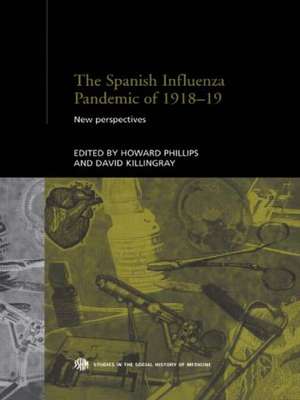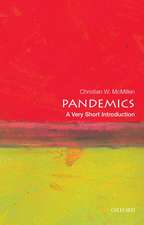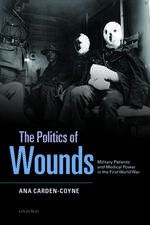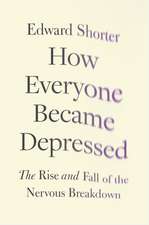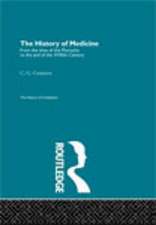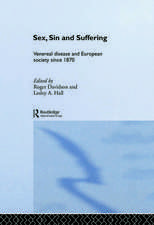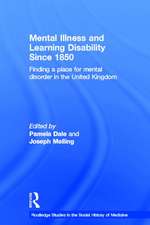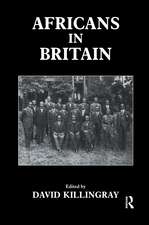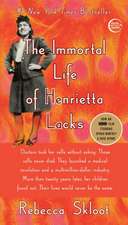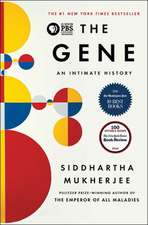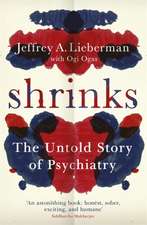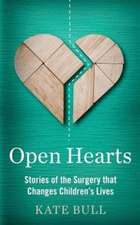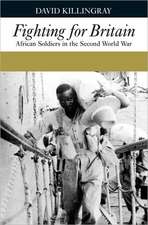The Spanish Influenza Pandemic of 1918-1919: New Perspectives: Routledge Studies in the Social History of Medicine
Editat de David Killingray, Howard Phillipsen Limba Engleză Paperback – 13 dec 2011
On a global, multidisciplinary scale, the book seeks to apply the insights of a wide range of social and medical sciences to an investigation of the pandemic. Topics covered include the historiography of the pandemic, its virology, the enormous demographic impact, the medical and governmental responses it elicited, and its long-term effects, particularly the recent attempts to identify the precise causative virus from specimens taken from flu victims in 1918, or victims buried in the Arctic permafrost at that time.
| Toate formatele și edițiile | Preț | Express |
|---|---|---|
| Paperback (1) | 426.70 lei 6-8 săpt. | |
| Taylor & Francis – 13 dec 2011 | 426.70 lei 6-8 săpt. | |
| Hardback (1) | 769.51 lei 6-8 săpt. | |
| Taylor & Francis – 12 iun 2003 | 769.51 lei 6-8 săpt. |
Din seria Routledge Studies in the Social History of Medicine
-
 Preț: 357.12 lei
Preț: 357.12 lei - 8%
 Preț: 382.02 lei
Preț: 382.02 lei - 5%
 Preț: 464.79 lei
Preț: 464.79 lei -
 Preț: 412.03 lei
Preț: 412.03 lei - 5%
 Preț: 460.25 lei
Preț: 460.25 lei - 22%
 Preț: 322.89 lei
Preț: 322.89 lei -
 Preț: 422.04 lei
Preț: 422.04 lei -
 Preț: 436.95 lei
Preț: 436.95 lei -
 Preț: 419.07 lei
Preț: 419.07 lei -
 Preț: 414.39 lei
Preț: 414.39 lei - 17%
 Preț: 285.46 lei
Preț: 285.46 lei -
 Preț: 415.46 lei
Preț: 415.46 lei - 17%
 Preț: 284.08 lei
Preț: 284.08 lei - 5%
 Preț: 461.14 lei
Preț: 461.14 lei - 5%
 Preț: 392.67 lei
Preț: 392.67 lei - 5%
 Preț: 345.77 lei
Preț: 345.77 lei - 5%
 Preț: 351.53 lei
Preț: 351.53 lei - 5%
 Preț: 414.23 lei
Preț: 414.23 lei -
 Preț: 413.37 lei
Preț: 413.37 lei -
 Preț: 438.27 lei
Preț: 438.27 lei -
 Preț: 469.34 lei
Preț: 469.34 lei - 17%
 Preț: 345.11 lei
Preț: 345.11 lei - 15%
 Preț: 306.68 lei
Preț: 306.68 lei - 5%
 Preț: 261.08 lei
Preț: 261.08 lei - 5%
 Preț: 261.15 lei
Preț: 261.15 lei -
 Preț: 349.69 lei
Preț: 349.69 lei - 25%
 Preț: 769.51 lei
Preț: 769.51 lei -
 Preț: 340.60 lei
Preț: 340.60 lei -
 Preț: 411.42 lei
Preț: 411.42 lei -
 Preț: 416.96 lei
Preț: 416.96 lei - 25%
 Preț: 767.38 lei
Preț: 767.38 lei - 18%
 Preț: 938.70 lei
Preț: 938.70 lei - 26%
 Preț: 737.19 lei
Preț: 737.19 lei
Preț: 426.70 lei
Nou
Puncte Express: 640
Preț estimativ în valută:
81.66€ • 84.77$ • 68.09£
81.66€ • 84.77$ • 68.09£
Carte tipărită la comandă
Livrare economică 22 martie-05 aprilie
Preluare comenzi: 021 569.72.76
Specificații
ISBN-13: 9780415510790
ISBN-10: 0415510791
Pagini: 380
Dimensiuni: 156 x 234 x 27 mm
Greutate: 0.7 kg
Ediția:1
Editura: Taylor & Francis
Colecția Routledge
Seria Routledge Studies in the Social History of Medicine
Locul publicării:Oxford, United Kingdom
ISBN-10: 0415510791
Pagini: 380
Dimensiuni: 156 x 234 x 27 mm
Greutate: 0.7 kg
Ediția:1
Editura: Taylor & Francis
Colecția Routledge
Seria Routledge Studies in the Social History of Medicine
Locul publicării:Oxford, United Kingdom
Cuprins
Introduction, Howard Phillips, David Killingray; Part 1 Part I Virological and pathological perspectives; Chapter 1 A virologist's perspective on the 1918–19 pandemic, Edwin D. Kilbourne; Chapter 2 Genetic characterisation of the 1918 ‘Spanish’ influenza virus, Jeffery K. Taubenberger; Part II Part II Contemporary medical and nursing perspectives; Chapter 3 The plague that was not allowed to happen, Wilfried Witte; Chapter 4 ‘You can't do anything for influenza’, Nancy K. Bristow; Part III Part III Official responses to the pandemic; Chapter 5 Japan and New Zealand in the 1918 influenza pandemic, Geoffrey W. Rice; Chapter 6 Coping with the influenza pandemic, Mridula Ramanna; Part 4 Part IV The demographic impact; Chapter 7 Spanish influenza in China, 1918–20, Wataru Iijima; Chapter 8 Flu downunder, Kevin McCracken, Peter Curson; Chapter 9 The overshadowed killer, N.P.A.S. Johnson; Chapter 10 Death in winter, D. Ann Herring, Lisa Sattenspiel; Chapter 11 Spanish influenza seen from Spain, Beatriz Echeverri; Chapter 12 A holocaust in a holocaust, Patrick Zylberman; Chapter 13 Long-term effects of the 1918 ‘Spanish’ influenza epidemic on sex differentials of mortality in the USA, Andrew Noymer, Michel Garenne; Part 5 Part V Long-term consequences and memories; Chapter 14 ‘A fierce hunger’, James G. Ellison; Chapter 15 ‘The dog that did not bark’, Myron Echenberg; Part 6 Part VI Epidemiological lessons of the pandemic; Chapter 16 Transmission of, and protection against, influenza, Stephen C. Schoenbaum; Notes; Bibliography, Jürgen Müller; Index;
Notă biografică
Howard Phillips, South African by birth, studied at the University of Cape Town and London University before joining the staff of the History Department at UCT in 1974. Since completing his doctoral thesis on the impact of the Spanish flu pandemic on South Africa (which was published in 1990), he has researched, taught and written on the medical history of South Africa. In 1998, together with David Killingray, he organised the first international conference on the influenza pandemic of 1918–19.David Killingray was born in 1939. He studied at the London School of Economics, the University of York, and the School of Oriental and African Studies where he gained a PhD in African history. He was a school teacher for 12 years in the UK and Tanzania. In 1972 he joined Goldsmiths College, University of London, where he is now Professor of Modern History. He has written books and many articles on aspects of African, Imperial, Caribbean and English local history, and has just completed a book on African soldiers in the Second World War.
Descriere
On a global, multidisciplinary scale, the book applies the insights of social and medical sciences to an investigation of the pandemic, covering include the historiography, virology, demographic and its long-term effects.
